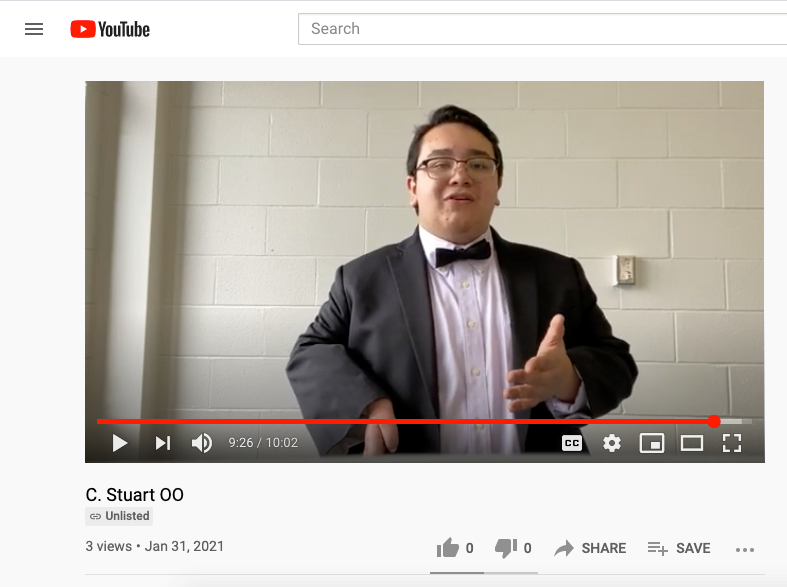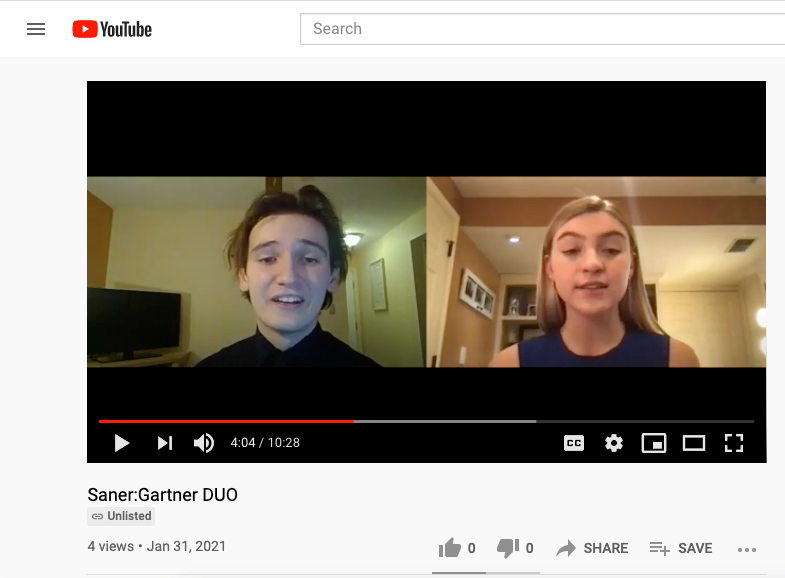Forensics pushes through challenges of virtual competitions
March 4, 2021
Forensics is an activity that is about performing together, but the pandemic has changed all of that.
Now, the Boone forensics team is making the best of a season where they are together apart.
“Every weekend, I got to spend hours with my friends competing. Now I sit in my room, alone,” said senior Connor Stuart. “Being able to run my pieces with my teammates, and complain about wearing a suit at 4am, are what I miss the most.”

Everything changed on March 13, 2020, when education went virtual, and with that the clubs and sports did too.
When the switch to virtual first began last spring, the forensics season was halted. At the time, the Kentucky High School Speech League in conjunction with the National Speech and Debate Association (NSDA) attempted to use Zoom as a platform for competition, but it was very informal and not at all similar to a traditional competition.
Over the summer, NSDA worked with a company to develop an online platform specifically for speech and debate competitions. It’s similar to Google Meet/Zoom, but has features that are specific to forensics like a timer and bonus chat options.
So this platform is the new host for forensics competitions, but it’s not always smooth sailing.
As expected, students struggled with wifi, bandwidth, home distractions, and other challenges. This left the coaches to pull together and brainstorm ways to make it easier to compete in a more asynchronous way.
This resulted in students recording their performances alone either at home or in classrooms. The performances get uploaded to the team’s YouTube account, and those links get sent to the host of that week.
The links then get emailed to judges who then watch and rank the performances and give any feedback as they normally would.

When the tournament is over, the host then chooses a method of awards ceremony- either live on Zoom or prerecorded, and announces placements. This year medals have become the standard, since trophies are too expensive to ship.
As a team, performing virtually has come with many challenges and changes. For example, many performers say they thrive off of their audience, and are struggling to convey their emotions and passion to a screen.
Seniors Stuart, Hilaena Bell, and Katie Gartner all agree that the most difficult change has been adjusting to performing online.
“The most difficult change was transitioning to the online platform. It’s an odd thing not being able to perform in front of a judge or your peers, and having to re-record pieces until they’re perfect.”
Senior Luke Ziegler explained that it’s also different not being able to see the competition.
“What I miss most is the thrill of being actually in the room with your competitors,” he said. “How forensics was, I could get a sense of their piece, I could physically see them performing it.”
The lack of being able to be with each other has caused team morale to change.

Team members say they are struggling with their lack of human connection. What once was a team filled with game nights, and fun practices, is now a team filled with Google meets and video feedback.
Through all of the changes, members say the team is still managing to maintain and build friendships. Members have been supportive of individuals’ struggles, and have helped celebrate successes.
The members of the forensics team have worked hard to keep the legacy of forensics alive and well.
Gartner, after reflecting on past experiences, she says she misses the team activities the most, especially KESDA.
KESDA is a tournament in Lexington at which multiple schools compete. It’s filled with team dinners, jumping in the hotel pool, and memories that team members say “will last a lifetime.”
Bell says that forensics was the biggest impact of her life, and it was difficult missing out on the senior experiences of it like the Christmas parties, and senior wills/roasts.